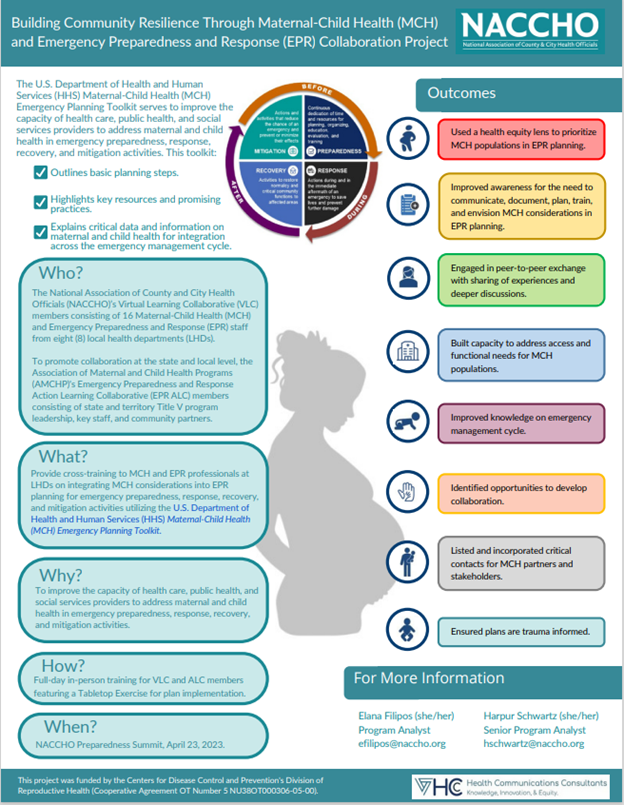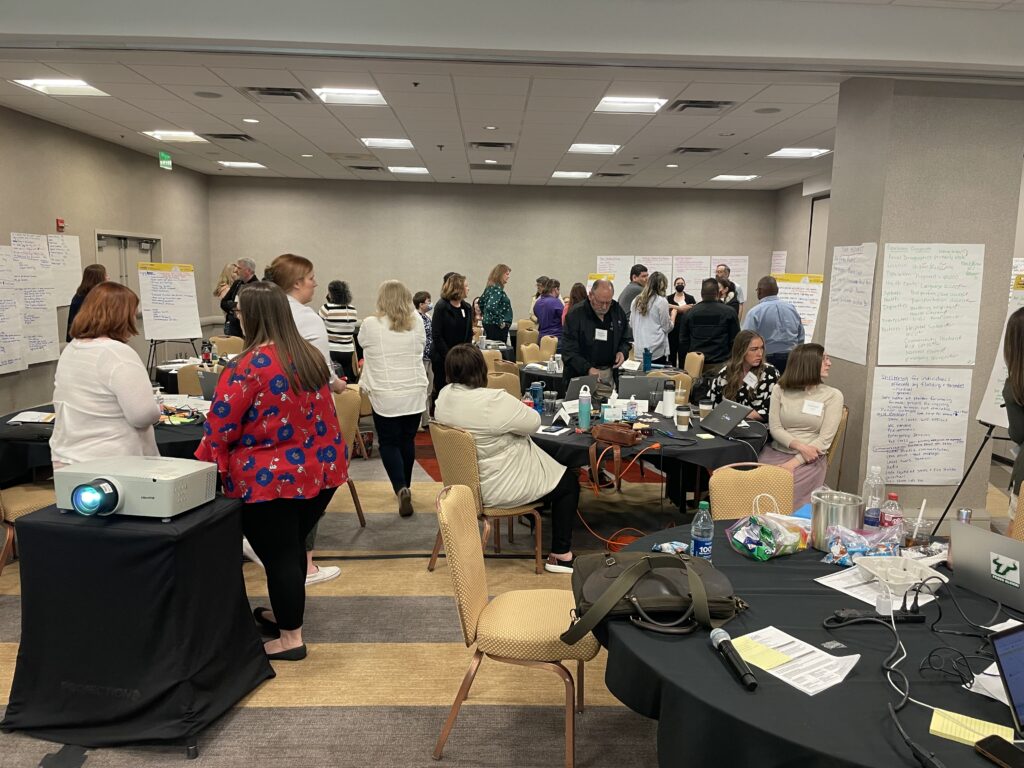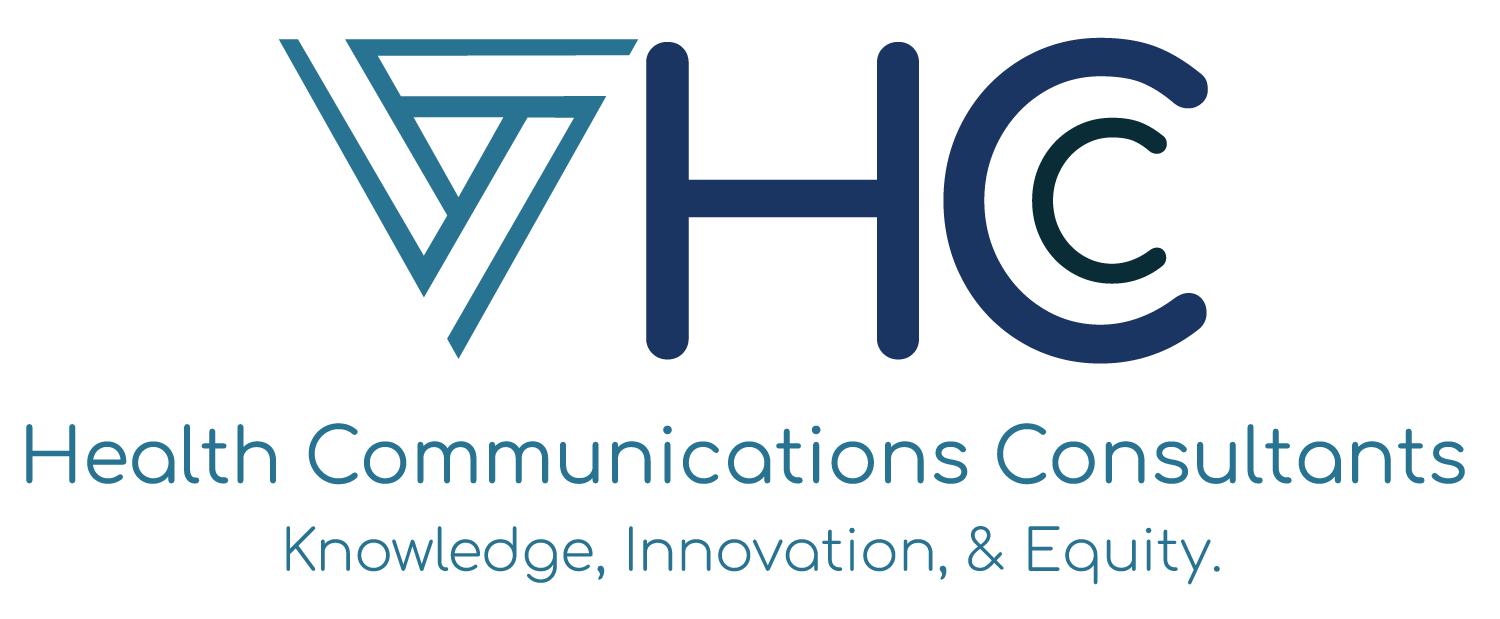Health Communications Consultants, Inc. (HCC, Inc.) was pleased to be selected again to support NACCHO’s Building Community Resilience through Maternal Child Health (MCH) and Emergency Preparedness and Response (EPR) Collaboration Project.
The National Association of County and City Health Officials (NACCHO), with support from the Division of Reproductive Health within the Centers for Disease Control and Prevention (CDC), initiated this project to improve the capacity of health care, public health, and social services providers to address maternal and child health (MCH) in emergency preparedness, response, recovery, and mitigation activities utilizing the U.S. Department of Health and Human Services (HHS) Maternal-Child Health (MCH) Emergency Planning toolkit. HCC, Inc. was engaged on this project to support the second year in building workforce capacity and competency for NACCHO’s Virtual Learning Collaborative (VLC) members. Six 2-hour virtual training courses were delivered via Zoom over 3 months in conjunction with a full day, in-person tabletop exercise training (TTX). The training featured Module 1 Preparedness, Module 2 Response, and Module 3 Recovery content from January 2023 through April 2023. Case Studies, adopted from Module 4, followed a week after each module delivery.
This project built on the Year 1 2022 MCH project and used the recommendations to further enhance the Year 2 experience for the virtual learning collaborative (VLC) participants. In Year 1, the consultant presented the Toolkit Module 2 and a Tabletop Exercise at the NACCHO Preparedness Summit in a full day session, and Modules 3 and 4 in 1.5-hour Zoom sessions. In Year 2, HCC, Inc. adapted the framework of the U.S. Department of Health and Human Services (HHS) Maternal-Child Health (MCH) Emergency Planning toolkit to six 2-hour virtual sessions, and a full day, in-person tabletop exercise (TTX) workshop delivered at the NACCHO Preparedness Summit in April 2023.

“Did a great job with facilitating and very prepared facilitators did a great job putting everyone at ease and making the content and activities approachable. This was such a helpful exercise and taught me so much. Thank you to the trainers for a wonderful learning day.”
A mixed methods approach was utilized to facilitate learning aligned with training outcomes. Facilitated group discussions were used to allow for an open exchange of ideas and comments, and clarification on topics and structured problem solving and decision making were utilized to present problems, generate ideas, sort ideas, choose an idea, and network.
Participants were able to brainstorm and review their plans for each phase of the emergency management cycle, identify what was missing in terms of people, products, and processes, and begin to identify actions to close the gaps. Participants gained awareness and practiced the skills of gap analysis for action planning and strategic planning during the Modules and Case Studies.
VLC participants recognized the MCH populations services they need to provide in an emergency, how to incorporate these services into their plans, and the ways in which they can work with their partners prior to an emergency event. Overall, participants reported an increase in knowledge and skills for incorporating MCH populations into their emergency plans and including MCH expertise in sheltering and mass care plans. The majority of sites recognized the value of including WIC in the review of their EPR plans, training MCH staff members, stakeholders, and partners in emergency preparedness and response, and having the PHEP Director train LHD staff on a regular basis. The verbatim responses provide a rich resource for the identification of training needs, resources, and additional tools.

Participants shared that they found the project very informative and learned a lot of new information.
“I really enjoyed the tabletop– it was great to meet everyone in person! I think everyone had the chance to share their best practices, and it felt like a great way to learn. I’m looking forward to bringing this information back to my LHD and start reviewing our PHEP plans. Thank you again for the opportunity!”
Attendee
The format of this TTX was a little different than I’m used to (adding the scenario updates). I enjoyed it and the way it was presented by the presenters.”
Attendee“Did a great job with facilitating and very prepared facilitators did a great job putting everyone at ease and making the content and activities approachable. This was such a helpful exercise and taught me so much. Thank you to the trainers for a wonderful learning day.”
Attendee
“Wonderful training! I really appreciate this opportunity.”
Attendee
To learn more about the project, please contact us or check out NACCHO’s blog here:


